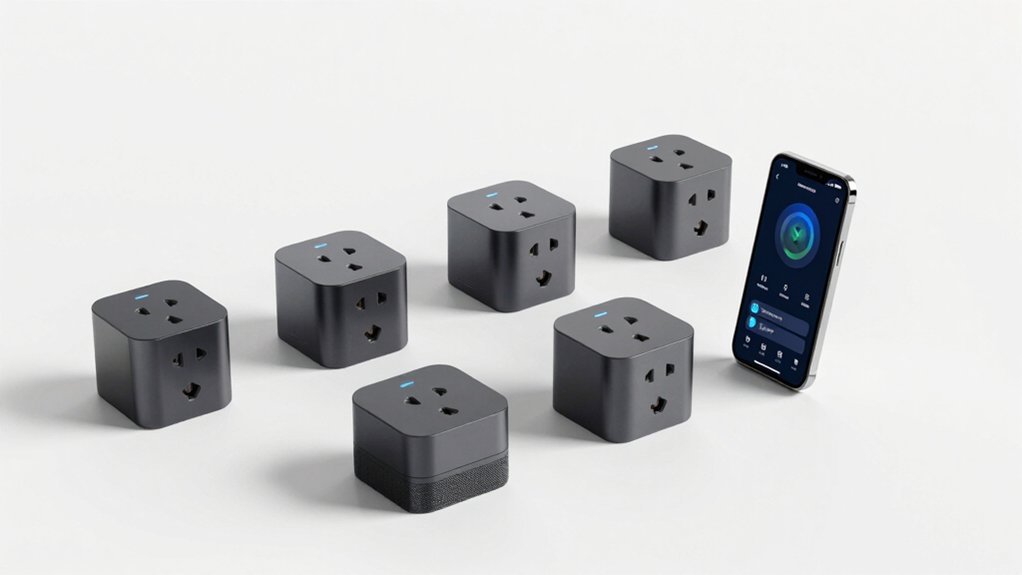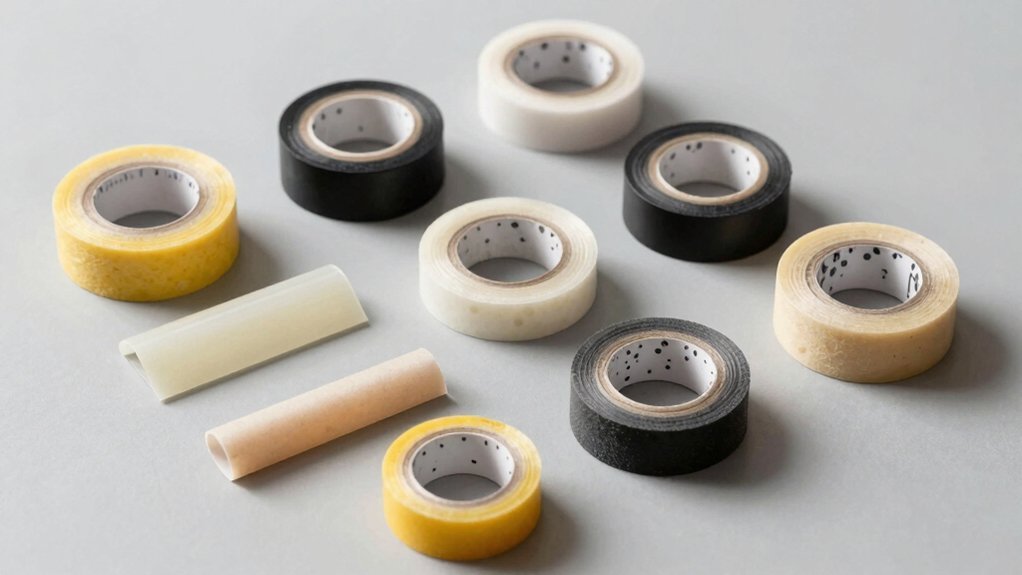To keep your solar panels in top shape, follow these five essential seasonal maintenance tasks: In spring, conduct a thorough visual inspection and clean panels with mild soap. During summer, monitor performance closely and adjust panel angles for ideal energy absorption. Fall requires regular debris removal to prevent buildup. In winter, safely manage snow accumulation using appropriate tools. Finally, schedule an annual professional assessment for an extensive system check. By performing these tasks, you'll guarantee your solar panels operate efficiently year-round, maximizing your energy production and investment. Dive deeper to uncover more tips for maintaining your solar power system's peak performance.
Spring Cleaning and Inspection

As winter thaws, it's important to give your solar panels a thorough once-over.
Start by visually inspecting your panels from the ground, looking for any obvious damage or debris accumulation. If it's safe to do so, get a closer look to check for cracks, loose connections, or signs of water damage.
Next, clean your panels to remove any built-up dirt, pollen, or grime. Use a soft brush or squeegee with a mild soap solution, avoiding abrasive materials that could scratch the surface. Rinse thoroughly with clean water and let them air dry.
Check your system's performance by reviewing recent energy production data. If you notice a significant drop in output, it may indicate a problem that requires professional attention.
Trim any overhanging branches or vegetation that may have grown during the winter, as these can cast shadows and reduce efficiency.
Also, verify your inverter is clean and functioning properly, looking for any error messages or unusual noises.
Summer Performance Optimization

During the peak solar season, it's crucial to guarantee your panels are operating at maximum efficiency. Start by monitoring your system's performance through your inverter or monitoring app. If you notice any unexpected dips in energy production, investigate the cause immediately.
Keep your panels clean to maintain peak performance. While rain can help, you'll want to remove stubborn dirt, pollen, or bird droppings. Use a soft brush and water, avoiding harsh chemicals or abrasive materials. Don't forget to trim nearby trees or vegetation that may be casting shadows on your panels.
Check your system's components for signs of wear or damage:
| Component | What to Look For | Action |
|---|---|---|
| Panels | Cracks or discoloration | Replace if necessary |
| Wiring | Exposed or frayed wires | Repair or replace |
| Inverter | Unusual noises or error codes | Contact a professional |
Lastly, consider adjusting your panels' tilt angle if possible. A slight change can enhance energy absorption during summer months when the sun is higher in the sky. By following these steps, you'll confirm your solar panels perform at their best during the sunniest season.
Fall Debris Removal

With autumn's arrival comes the need for vigilant debris removal from your solar panels. As leaves fall and wind gusts increase, your panels can quickly become covered in debris, reducing their efficiency. To maintain peak performance, you'll need to clear away leaves, twigs, and other organic matter regularly.
Start by visually inspecting your panels from the ground. If you notice any buildup, use a soft-bristled brush or leaf blower to gently remove the debris. For stubborn spots, a spray of water from a hose can help dislodge stuck-on material. Remember, never use abrasive tools or harsh chemicals, as these can damage the panel's surface.
If your panels are on a steep roof or difficult to access, consider hiring a professional cleaning service. They've the tools and expertise to safely clean your panels without risking damage or personal injury.
- Imagine the satisfaction of seeing your clean, efficient panels capturing every ray of autumn sunlight
- Feel the peace of mind knowing you're maximizing your energy production and savings
- Envision the environmental impact of your well-maintained, clean energy system
- Experience the pride of being a responsible, proactive solar panel owner
Winter Snow Management

Winter's snowy blanket can greatly impact your solar panels' performance. Snow accumulation on your panels can notably reduce their efficiency, so it's essential to have a plan for snow removal.
First, verify you have the right tools on hand: a roof rake with a soft brush attachment is ideal for safely clearing snow without damaging the panels.
When removing snow, always start from the bottom of the array and work your way up. This prevents snow from piling up at the bottom edge. Be gentle and avoid applying excessive pressure, as this could crack or scratch the panels. If possible, clear snow after each snowfall to prevent heavy buildup.
Don't use hot water to melt snow, as the sudden temperature change can damage the panels. Instead, let the sun do its work when possible. Most panels are tilted, allowing snow to slide off naturally as it melts.
For persistent ice, consider using a chemical de-icer specifically designed for solar panels.
Lastly, check your system's output regularly during winter months to verify snow isn't impacting performance. If you notice a notable drop, it may be time for a thorough cleaning.
Annual Professional Assessment

While regular DIY maintenance is essential, you shouldn't skip an annual professional assessment of your solar panel system. A certified solar technician can spot potential issues you might miss and guarantee your system's peak performance. They'll thoroughly inspect your panels, inverters, wiring, and mounting structures for any signs of wear, damage, or inefficiency.
During the assessment, the technician will clean hard-to-reach areas, check electrical connections, and test the system's output. They'll also review your energy production data to identify any underperforming panels or components. This thorough evaluation helps prevent costly repairs and extends your system's lifespan.
Schedule your annual assessment for early spring or late fall when temperatures are mild and daylight hours are moderate. This timing allows you to address any issues before peak energy production seasons.
Consider the emotional benefits of a professional assessment:
- Peace of mind knowing your investment is protected
- Confidence in your system's safety and efficiency
- Excitement about maximizing your energy savings
- Satisfaction in contributing to a sustainable future
Frequently Asked Questions
How Long Do Solar Panels Typically Last Before Needing Replacement?
You can expect your solar panels to last 25-30 years before needing replacement. However, they'll gradually lose efficiency over time. With proper maintenance, you'll maximize their lifespan and performance throughout those decades of use.
Can I Install Solar Panels Myself, or Is Professional Installation Necessary?
While you can install solar panels yourself, it's not recommended. Professional installation guarantees proper setup, safety, and efficiency. You'll also benefit from warranties and expert knowledge. Unless you're highly skilled, it's best to hire professionals.
Are There Any Tax Incentives or Rebates Available for Solar Panel Installations?
Yes, you'll often find tax incentives and rebates for solar panel installations. Check federal, state, and local programs for available options. You can save money through tax credits, cash rebates, and performance-based incentives. Research thoroughly to maximize your benefits.
How Do Solar Panels Affect My Home's Resale Value?
You'll likely see a boost in your home's resale value with solar panels. They're attractive to buyers, offering energy savings and eco-friendliness. On average, solar installations can increase property value by 4.1% or more.
What Happens to Excess Energy Generated by My Solar Panel System?
Excess energy from your solar panels doesn't go to waste. You'll typically send it back to the grid through net metering, earning credits on your utility bill. Alternatively, you can store it in batteries for later use.
In Summary
You've now got a thorough seasonal checklist for solar panel maintenance. By following these tasks throughout the year, you'll keep your system running efficiently and extend its lifespan. Remember, spring's for cleaning, summer's for optimizing, fall's for debris removal, and winter's for snow management. Don't forget to schedule that annual professional assessment. With consistent care, you'll maximize your solar investment and enjoy clean, renewable energy for years to come.





Leave a Reply